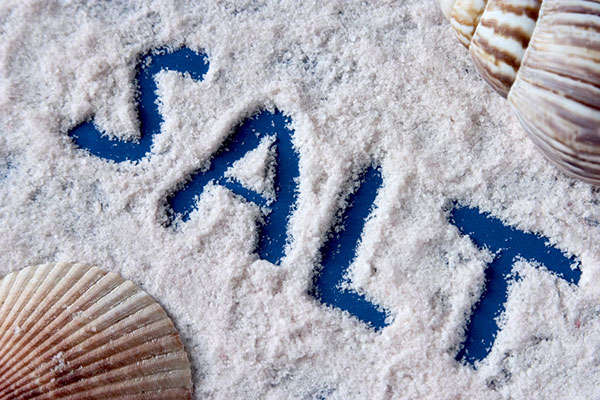Drinking too much water, people are making the sea ... more salty
Areas that do not have enough drinking water often switch to desalination solutions, the process of removing salt in seawater to make it drinkable. But now, researchers are concerned that the coating products of this process will devastate sensitive marine ecosystems.
" The increase in salinity is one of the most important environmental problems in the 21st century , " said Amy Childress, a researcher at the University of Southern California who studies the effects of desalination processes. in an interview with New Scientist magazine.

Most desalination plants pump this excess concentrated salt back into the ocean.
Operation of desalination plants
A desalination technique is called reverse osmosis , in which saline water flows through a membrane that prevents salt from passing. Then, on one side of the membrane, people will get the drinkable water, and on the other side, you will have concentrated salt water with double salinity compared to normal seawater.
Most desalination plants pump this excess concentrated salt back into the ocean. But researchers like Childress fear that this will hurt salinity-sensitive organisms such as red abalone or giant kelp, which is home to many different marine species.
No waste
To avoid such potential consequences, a proposal was made that plants could dilute this excess salt water with fresh water that was not suitable for drinking, but clean enough to pump back to the sea. It will make producers a step further in the process of providing this vital resource to humans - but it really deserves because it can preserve the sensitive environment of the ocean.
Clearly we have some bottlenecks that need to be addressed with this desalination process. And with 4 billion people facing water scarcity, dehydration becomes even more necessary, but it is not worth it if it comes with the ocean environment to suffer from the thirst of who we are.
- Should I drink diluted salt water early in the morning?
- Drinking water this way, cancer, diabetes will never reach you
- What if the sea is no longer salty?
- Video: Mistakes when drinking water many people have
- Water drinking habits to remember
- Tea everyone drinks but how to make tea is perfect - do you know?
- 12 misunderstandings about popular drinks
- Why do salty snacks make people eat as much as they crave?
- Ancient medicine confirms that cold water is more harmful to the body than warm water
- Simple recipe for safe drinking water
- The reason you should drink warm water instead of cold water
- How to drink water properly?
 'Fine laughs' - Scary and painful torture in ancient times
'Fine laughs' - Scary and painful torture in ancient times The sequence of numbers 142857 of the Egyptian pyramids is known as the strangest number in the world - Why?
The sequence of numbers 142857 of the Egyptian pyramids is known as the strangest number in the world - Why? History of the iron
History of the iron What is alum?
What is alum? Shocking discovery about the Earth's 'tail'
Shocking discovery about the Earth's 'tail'  Top 10 Unbelievable Ways Animals Survive in Dangerous Environments
Top 10 Unbelievable Ways Animals Survive in Dangerous Environments  Mysterious wonders of the world
Mysterious wonders of the world  The largest animals that lived in the desert, still exist today
The largest animals that lived in the desert, still exist today  Why can submarines dive and surface?
Why can submarines dive and surface?  2,000-year-old Mayan invention could save us
2,000-year-old Mayan invention could save us 